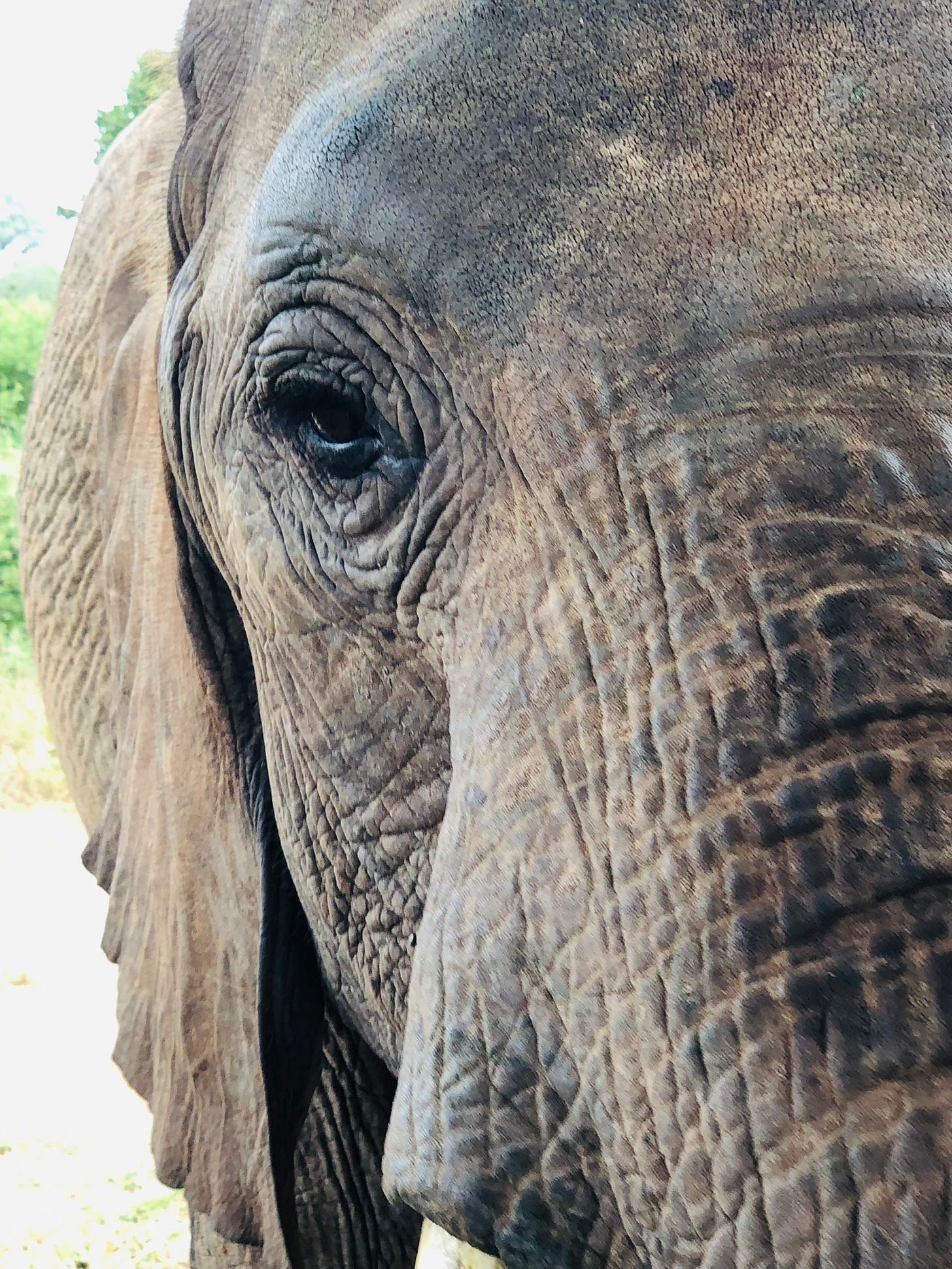
“I am pure light, not just a fistful of clay. The shell is not me, I came as the royal pearl within. Look at me not with outward eye but with inward vision of the heart. Follow me there and see how unencumbered we become.” ~ RumiI was not a child prone to tantrums or defiant outbursts.
So you can imagine my mother’s surprise during our first (and, ahem, last) family outing to the Cleveland zoo where I lost my metaphorical marbles the moment we encountered a captive female African elephant in a cement paddock.
“Help her!” I shrieked in distress—acutely aware of the suffering splayed out before me. Chain choked tightly around an immobilized mighty ankle designed for motion, the enormous creature could only pitch side to side and vocalize in futility. (Note that this method of restraint and dismal conditions are still the norm for elephants in captivity today.)
Though not yet three years old, I knew what I was seeing and everything in me revolted.
In my torrent of tears, I was hustled back to the car as hastily as my bewildered mother could muster—field trip finito. Zoos and circuses were solemnly sworn off by us all from that point forward, on sheer principle and for the sake of everybody’s well-being.
Interestingly given its consequence in this chapter of my early childhood and eventual chosen vocation of animal advocacy, I don’t remember a single detail of this occurrence.
Yet I see it so clearly in my mind’s eye because it became family lore. Largely because my parents recognized the significance of what (and who) I had born witness to through my discerning child’s lens. And who had witnessed me equally.
Looking back, I applaud my kind parents for their affirmation of my lucid young seeing, and their decisive determination to honor my viewpoint. In their gift of solidarity they empathized with and embraced not just my reaction, but the weight and heft of the injustice I had observed and innately recognized.
Such things require acknowledgement in order to be remedied.
A unified application of the “inward vision of the heart” to which Rumi gives such poetic voice.
“In every joy which kindness triggers, flashes a flicker of that wild joy of limitless belonging.” ~ Br. David Steindl-RastDecades later I found myself coming full circle with that moment (I can’t quite call it a memory), traveling with a beloved friend under the auspices of the esteemed Sheldrick Wildlife Trust in East Africa.
A veritable Garden of Eden where wild-born elephants, black rhinos, and other majestic species who become orphaned—often, though not always, because of human actions—are rehabilitated and in the fullness of time returned to their birthright of freedom.
Achieving such outcomes requires years of devotion. The trust’s tender-hearted and steady human “keepers” raise these motherless and dependent babies as their own around the clock with the assistance of a community of wild creatures that is fostered and safeguarded into perpetuity across Kenya’s vast and open wild spaces.
A multi-species effort collectively suturing broken bonds, and thereby entire landscapes, back together. These wounded orphans ultimately find healing in their respective adoption of the “wild joy of limitless belonging” Brother Steindl-Rast speaks often of, which I believe every living being is made for.
“How are the keepers chosen?” I delved curiously in the early days of our visit, in awe of the caliber of compassion and competence on display in our midst, and by the unmistakable bond between every orphan and caretaker. Keepers serve from their inner depths with a totality, faithfully etching into their memories every tiny trunk and felted ear fold, girth and gait, sweet or sassy temper and trait.
It made all the more sense when I learned that the elephant orphans are given the autonomy to choose their own keepers vs. having keepers chosen for them.
The small infants once cast adrift take quickly to the task, as well they should—their futures depend upon choosing wisely. Only one of every three prospective keepers meets the high bar of earning the orphans’ trust. A flawless and formidable hiring strategy with a sole (soul?) focus on Rumi’s aptly-phrased gleaming “pearl within.”
“Elephants see our hearts,” I was repeatedly told.
Of course they do. And they appoint appositely.
"Knowing that you love the earth changes you, activates you to defend and protect and celebrate. But when you feel that the earth loves you in return, that feeling transforms the relationship from a one-way street into a sacred bond." ~ Robin Wall KimmererI never learned the true name of the elephant in my childhood—the one her mother and doting nannies would have bestowed upon her when she took her long-awaited place beside them (elephants can gestate for up to 22 months).
Nor did I come to know with certainty her place of origin on the African continent, foundational and formative in my life and my parents’ lives though she was. (Records indicate it was possibly Tanzania.)
However my mother and I discovered recently that her captive name would either have been “Tara” or “Simba.” Both were born wild in 1953, captured as babies and stolen away from their African homes and extended elephant families in 1955, and confined in concrete during our lamentable 1971 encounter (before the term “enriched environment” became a captivity mantra).
I can’t tell you which of the two seared my nascent soul, but I can testify that she was a shell of the exquisitely complex and sagacious savannah creature she was born to be.
I wonder sometimes what her perceptions were of those fraught few minutes that transpired between us in her dark constructed confinement where freedom was fettered by shackles and concrete, and nothing green or good grew. I like to imagine that we locked eyes in that sterile space and held each other’s gaze as we exchanged our wordless truths. Pearl to pearl. A mutual seeing, and two-way illumination.
Her muted suffering taking voice in me.
A shared unencumbrance, Rumi might have baptized the burden all too briefly lifted. And he would have been right.
It’s the same transformational concept of ecological reciprocity Robin Wall Kimmerer embodies in her work and articulates so gorgeously above.
Our love of Earth and her bounty of beautiful creatures was never meant to be a “one-way street”—ours and ours alone to tender, dominate, or deny. The truth is that it’s always been theirs too. And it goes both ways if we’d simply open the aperture on our lens a little wider and let them in.
Or in the zoo and circus elephants’ tragic predicaments: out.
It’s a “sacred bond” that, when honored, can and does both renew and restore conjointly.
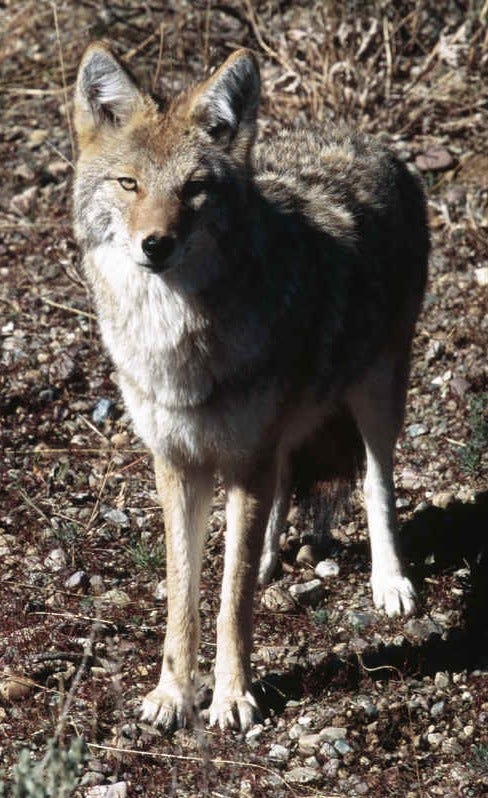
"We have forgotten our belonging to one another and we’ve forgotten the realness of our connectedness. And that includes our belonging to our own being, to our own body, to the earth body." ~ Tara BrachOne of the most ironic attributes of the modern day is how endemic forgetting has become.
I’ve written about this era of amnesia many times before. Despite our human collective never having had as much access to knowledge and information at our literal fingertips to remind us. Of course, the correlation between the two is not lost on me.
Most of us are holding so much—including our breath—to deal with life’s precarities. There’s not much wiggle room for more if we’re even too preoccupied to breathe properly.
Nevertheless, remembering might serve us holistically, and restore to us our precious and invigorating breath. Remembering is “thinking of again” or “keeping in mind for attention or consideration.” Or, my very favorite definition: “bethinking sense.” Something our world could certainly use more of. (It would also make a great bumper sticker!)
Toward this end, Tara Brach’s words above mirror what Mother Teresa presciently said long ago—that “if we have no peace, it is because we have forgotten we belong to each other.” Brach expands on this salient truth by making it even more tangible, encouraging us to think again of the very “realness of our connectedness.”
Not only our kinship with other living beings but with the bright and ever-balancing body of the Earth.
Which brings me back to where we started: to see and be seen. A reciprocal witnessing that begets the whole. When we commit ourselves to seeing others, we become clear-sighted enough to recognize and embrace when we too are seen.
Elephants browsing with agile trunks alongside sisters and daughters, and their lonely captive kin still hoping and dreaming for a return to this inheritance.
An amiable juvenile alligator suspended serenely with her head at the waterline and her feet resting on the river bottom, aspiring for a closer look at the humans who watch her from the shore with deserved awe.
Sun-loving canines and hens of every avian variety—wild and domestic—chestnut brown and gold with kindnesses, eager to receive them in return.
Fine-faced horses soft as velvet prancing in a far-flung field, fast to make friends.
“These lovely lamps, these windows of the soul,” wrote French poet Guillaume de Salluste Du Bartas (1544-1590).
I couldn’t possibly say it better.
"I believe that the world was created and approved by love, that it subsists, coheres, and endures by love, and that, insofar as it is redeemable, it can be redeemed only by love." ~ Wendell Berry
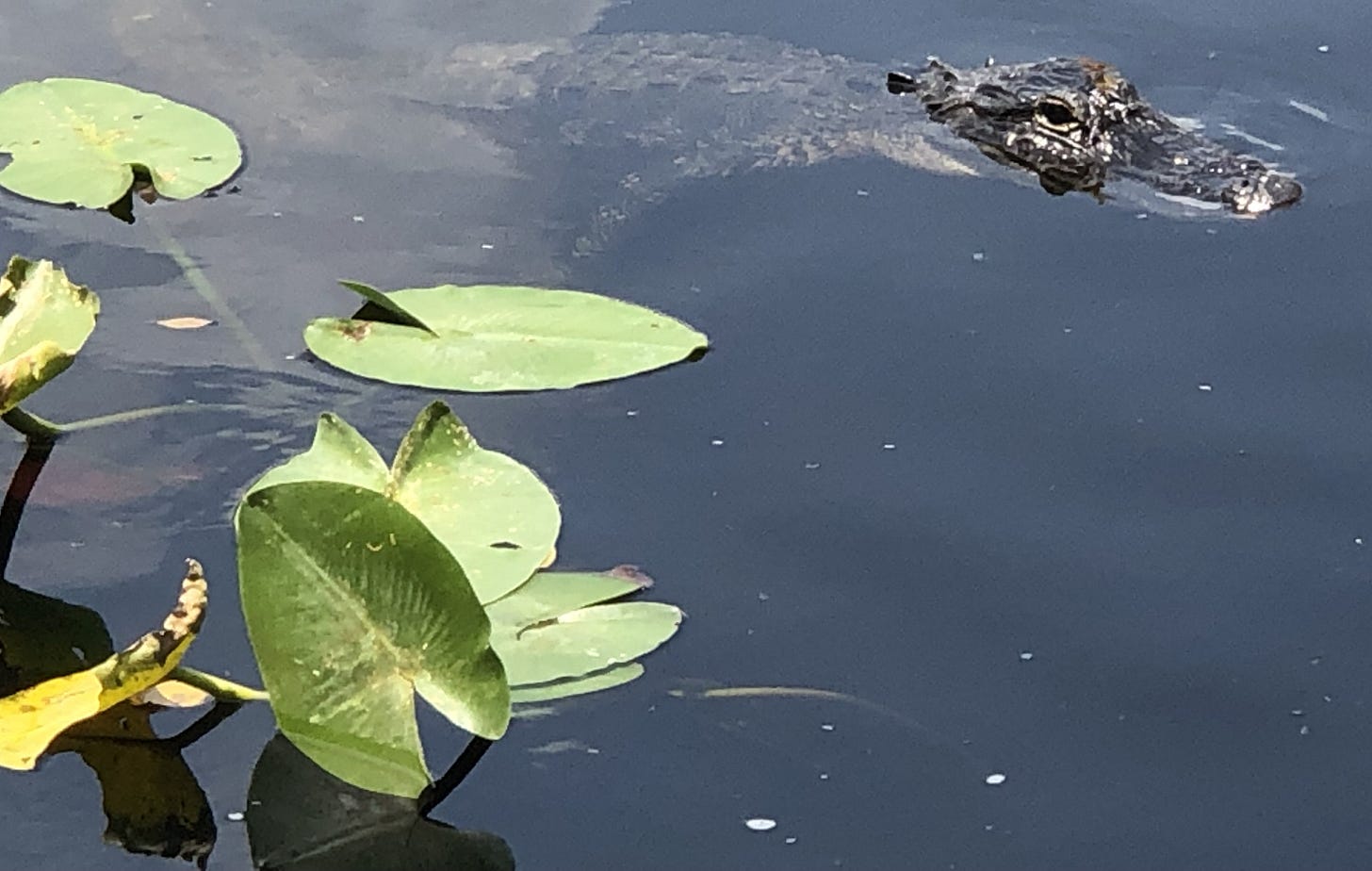
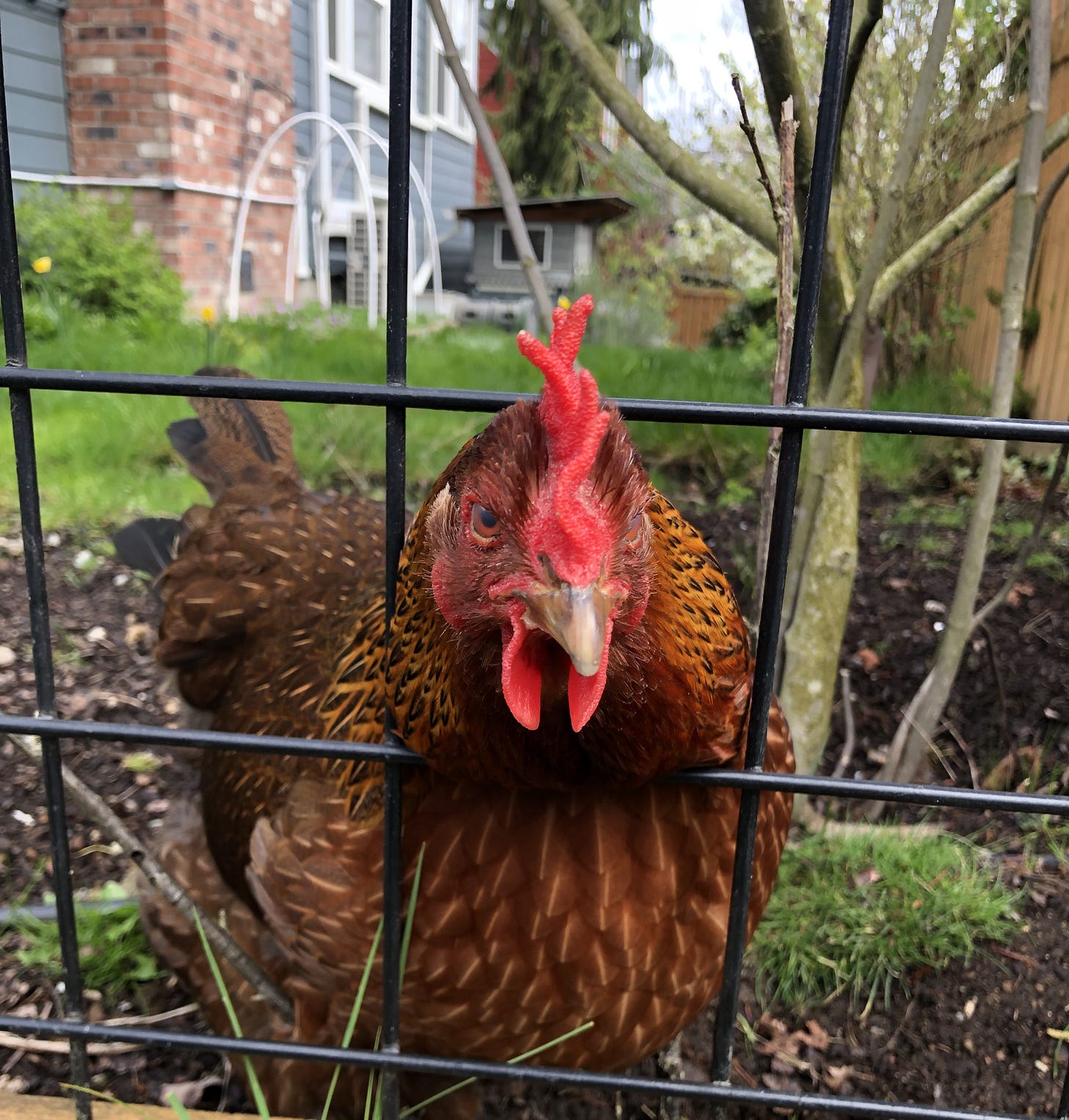
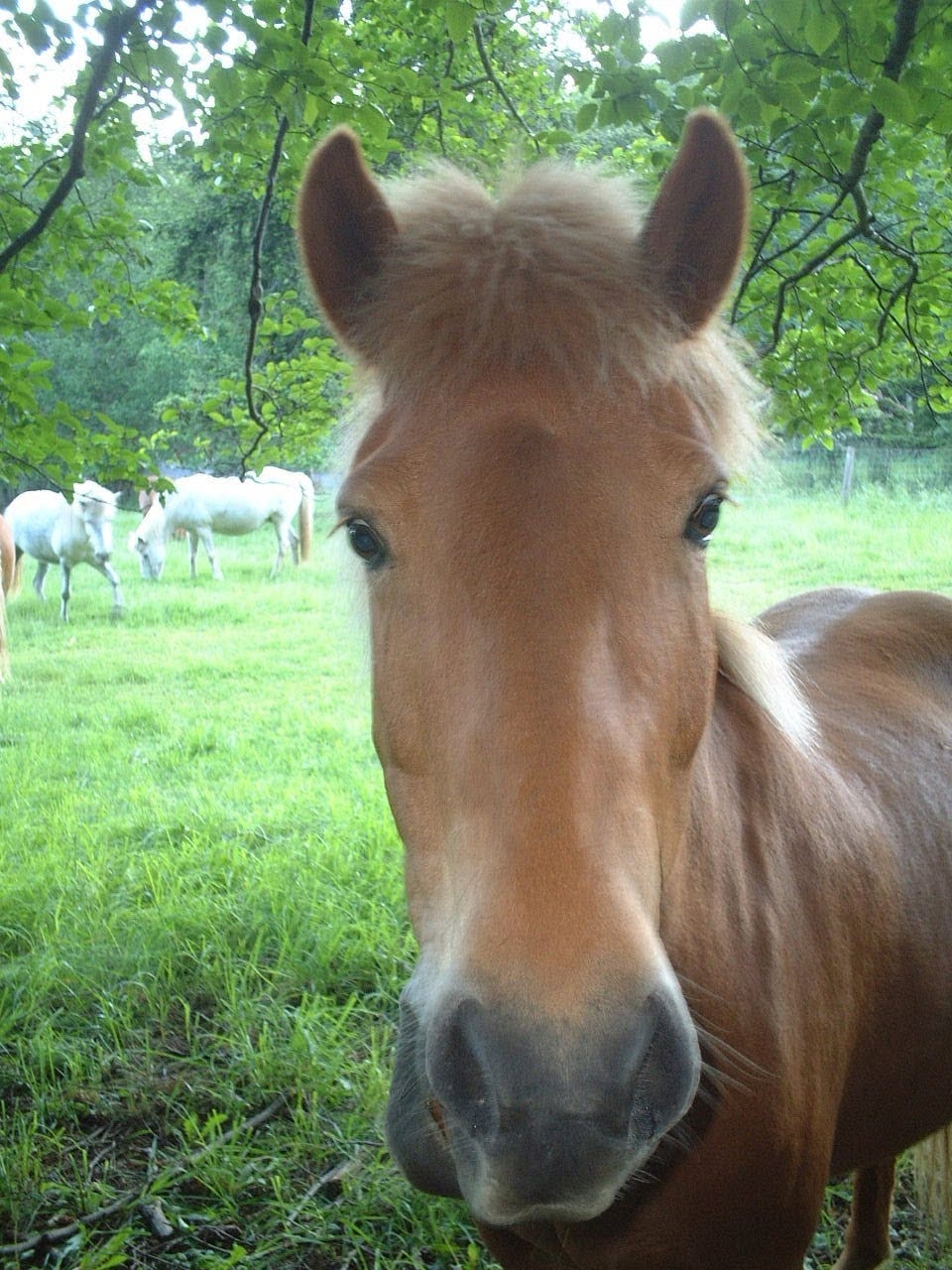
I feel like this essay took my hand and led me to wonderful places, with a glimpse of a little warrior child who sensed injustice and demanded change—right on the spot!
Bravo!
The beginnings of the Stephanie we love. The kind-hearted, adept warrior.